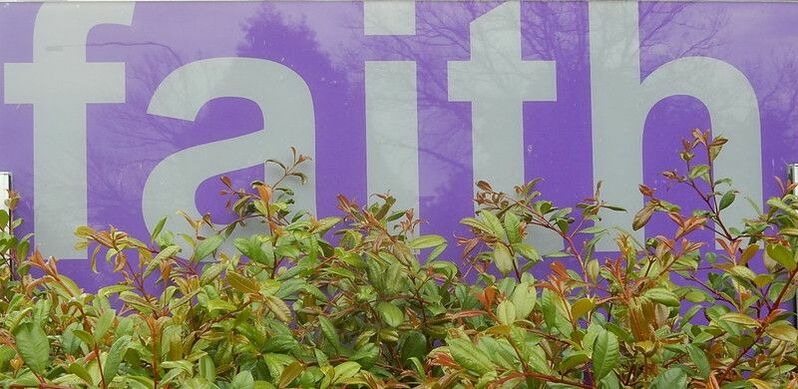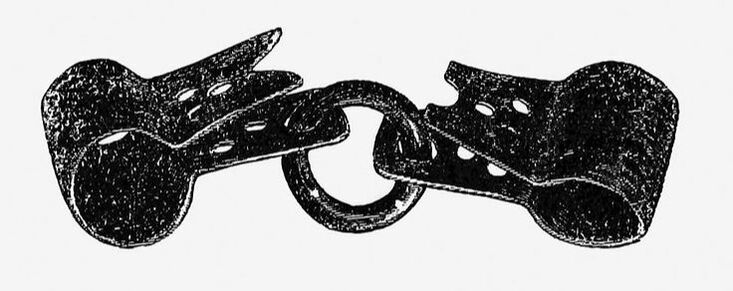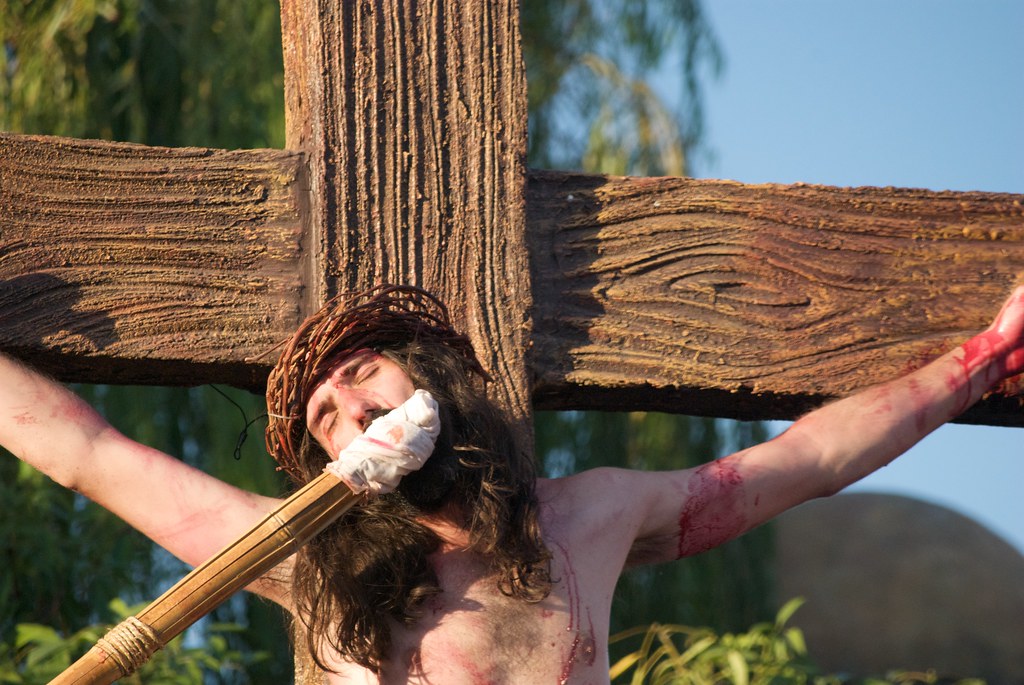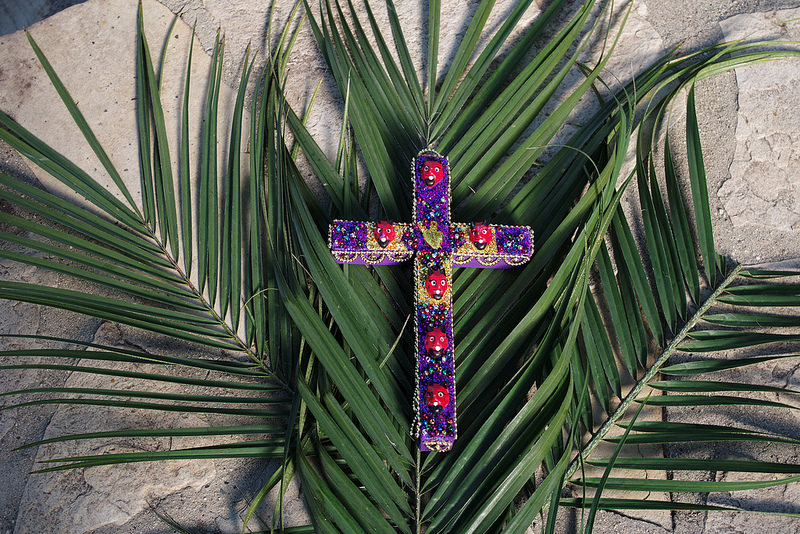 "And without faith it is impossible to please God, because anyone who comes to Him must believe that He exists and that He rewards those who earnestly seek Him." (Hebrews 11:6) Scripture is clear that we must have faith in God in all circumstances. Faith is the currency of heaven. It helps us to have hope where a situation may seem hopeless. God's promises are what empower our faith, and real faith unlocks the anointing for us to carry out our God-given assignments.
Let's look at Jacob's son, Joseph, who is written about in the book of Genesis. Here is a man that was sustained by faith and successfully completed his assignment to provide for his family and speak to them about their future. Joseph's assignment came about in a painful and unexpected way. At the age of 17, he was having dreams that gave him clues to his future and also put him in the position of being hated by his brothers. They hated Joseph so much that they sold him into slavery. He landed in Egypt and prospered until the wife of the captain of the guard of Pharaoh had him unfairly thrown into prison where he remained until he was 30 years old. The dreams that Joseph had may have been what sustained him all the years he was in prison. We read that God's favor was with Joseph in every season of his life. His release from prison came when he was able to interpret Pharaoh's dream and develop a plan to keep the people of Egypt fed while Pharaoh prospered. During seven years of abundance, Joseph collected and stored grain so that during the seven years of famine the Egyptians would have food. In addition, Egypt supplied grain to the surrounding nations. Imagine Joseph's feelings when he saw his brothers, who sold him into slavery, come to purchase grain! Joseph revealed himself to his family, and they all came to live in Egypt. Though this foreign land became a haven for some time, Joseph knew that Egypt was not to be the permanent home of the children of Israel. He remembered the promise that God gave to his ancestors, Abraham, Isaac and Jacob, and knew that God had a promised land for him and his descendants. He recognized that God had ordained for him to be in Egypt during the famine so that he could save his family. (Genesis 50:20-21) His faith in the promises of God actually took him beyond his life on earth. At the age of 110 he prepared to die. Here is what he told his family: "'I am about to die. But God will surely come to your aid and take you up out of this land to the land He promised on oath to Abraham, Isaac and Jacob.' And Joseph made the sons of Israel swear an oath and said, 'God will surely come to your aid, and then you must carry my bones up from this place.'" (Genesis 50:24-25) Unless God told him, Joseph had no way of knowing that his descendants would be in Egypt for 430 years under the cruel task master of slavery. All he knew for sure was that God made a promise and that He kept His promises. His faith was empowered by his belief in God's Word. As the children of Israel were preparing to leave Egypt, they made good on their promise to Joseph. "Moses took the bones of Joseph with him because Joseph made the sons of Israel swear an oath. He had said, 'God will surely come to your aid, and then you must carry my bones up with you from this place.'" (Genesis 13:19) We must do as Joseph did—meditate on God's promises. As the Word says, All the promises of God are "Yes" and "Amen" in Christ Jesus. (2 Corinthians 1:20) We must feed our faith by renewing our minds with the truth of God so that it roots in our hearts. It is faith that brings provision from the heavenly realm. It is time for us to march out of the bondages of Egypt into our promised lands. If we do so by faith, we will see the fulfillment of the promises of God. What the Church calls Good Friday converged with Passover this year. It was Jesus/Yeshua who brought fullness to the meaning of Passover as the true Passover Lamb, and His death and resurrection is a type of exodus. The sacrifice of Jesus, the Passover Lamb, is what took away the sins of the world and provided eternal life for those who would accept what He did. Through crucifixion, burial and resurrection, Jesus crossed over to the other side of the grave. Like Jesus, we who confess Him as Lord must undergo our own Passover and exodus—death and resurrection. "Or don't you know that all of us who were baptized into Christ Jesus were baptized into His death? We were therefore buried with Him through baptism into death in order that, just as Christ was raised from the dead through the glory of the Father, we too may live a new life." (Romans 6:3-4)
As the Passover Lamb, selected by Father God, Jesus knew the full extent of what was expected of Him. The disciple John writes about this: "It was just before the Passover Feast. Jesus knew that the time had come for Him to leave this world and go to the Father. Having loved His own who were in the world, He now showed them the full extent of His love." (John 13:1) He demonstrated His love in every detail of His suffering and made provision for us to be healed, protected and saved through His broken body and blood. At the Passover Seder there are four cups of wine which represent the "I Will" statements in Exodus 6:6-7. They are referred to as (1) the cup of blessing, (2) the cup of judgment, (3) the cup of redemption, and (4) the cup of Elijah. At the last meal with His disciples, Jesus described the cup of redemption. "This cup is the new covenant in my blood, which is poured out for you." (Luke 22:20) Eventually, the redemption cup found its way into the traditional communion service in Christianity. It is a reminder to us that God accomplished our redemption through the blood of the Lamb—the central theme of the Passover. After the "last supper," Jesus went to the Garden of Gethsemane where He prayed. He began to understand the fullness of what was expected of Him and prayed, "My Father, if it is possible, may this cup be taken from me. Yet not as I will, but as You will." (Matthew 26:39) The cup did not pass from Him. He had to drink the full cup of redemption. In his book, Paid in Full, Rick Renner points out that when Jesus arrived at Golgotha He was offered "vinegar mingled with gall." (Matthew 27:34) The gall was a narcotic to help alleviate the pain of the execution. While Jesus was dying on the Cross, He was offered vinegar and gall again. (Matthew 27:48) Both times He refused the offer. As Rick Renner said, "He knew He was to fully consume the cup the Father had given Him to drink." And so, He did. Jesus endured the cruelest, most barbaric form of torture that could have been used before He died. All of us were redeemed with the "precious blood of Christ, a lamb without blemish or defect." (1 Peter 1:19) Our Passover Lamb endured the Cross "for the joy set before Him." (Hebrews 12:2) The truth is that because Jesus overcame death, we receive the benefits of His suffering. Jesus drank the whole cup of suffering and completed the work of redemption so that we can share in His death and resurrection and have life everlasting with Him. Hallelujah! In Biblical days, lavish processions were conducted to celebrate various types of victories. When David returned from killing the giant "the women came out from all the towns of Israel to meet King Saul with singing and dancing, with joyful songs and with tambourines and lutes." (1 Samuel 18:6) At the dedication of the rebuilt wall of Jerusalem, the Levites and priests and singers marched up to the wall in festive celebration. "Ezra the scribe led the procession." (Nehemiah 12:36) God's goodness and desire to tabernacle with humanity was celebrated during the Feast of Sukkot. Parading through Jerusalem to the Temple, worshipers waved what was called a lulab (branches of myrtle, willow and palm) as they recited Psalm 118. In part, this says, "The Lord is God and has made His light shine upon us. With boughs in hand, join in the festal procession up to the horns of the altar." (Verse 27)
All of this brings us to the time when Jesus joined the crowds who gathered in Jerusalem to celebrate Passover. Jesus had just raised Lazarus from the dead, and many had heard about this miraculous sign. Here is how John 12:12-13 describes it: "The next day the great crowd that had come for the Feast heard that Jesus was on His way to Jerusalem. They took palm branches and went out to meet Him, shouting, 'Hosanna!' 'Blessed is He who comes in the name of the Lord!' 'Blessed is the King of Israel.'" Luke adds some different details to the description of the procession: "As He went along, people spread their cloaks on the road. When they came near the place where the road goes down the Mount of Olives, the whole crowd of disciples began joyfully to praise God in loud voices for all the miracles they had seen. 'Blessed is the King who comes in the name of the Lord!' 'Peace in heaven and glory in the highest!'" (Luke 19:36-38) The crowds in Jerusalem were willing to follow Jesus as long as He was leading them where they wanted to go. However, this victory parade that celebrated the man who raised Lazarus from the dead would lead to a Cross. For Jesus to fulfill His mission and have the ultimate victory over death, He Himself would have to die. His mission included the expansion of the Kingdom of God. He told His disciples, "I tell you the truth, unless a kernel of wheat falls to the ground and dies, it remains only a single seed. But if it dies, it produces many seeds." (John 12:24) The crowd's expectation that Jesus would be the king who would bring down the Roman army and restore their nation to its former glory were to be dashed. In a few days the peoples' commitment to follow their king changed, and they shouted for Jesus to be crucified. They did not understand that the ultimate victory of resurrection life began at the Cross. The apostle Paul explains it well in 2 Corinthians 2:14. "But thanks be to God, who always leads us in triumphal procession in Christ and through us spreads everywhere the fragrance of the knowledge of Him." Will we join the procession knowing that we must submit to His will and walk the road of sacrifice? We must finish the victory procession by carrying our crosses (Luke 14:27) and following the King wherever He leads us.  After creating man in His own image, God's first pronouncement was one of blessing. (Genesis 1:28) He made His desire to bless creation known in Scriptures and sealed that desire when Jesus came to earth so that we could have life, "and have it to the full." (John 10:10) I wonder; however, if the Church is missing the fullness of the blessing by not understanding the times and the seasons. God puts together kairos seasons--times when there are divine alignments of circumstances and situations that grant us opportunities to take more territory and grow into the image of Christ. Such an opportunity occurs on April 6, 2019, which is also the Nisan 1 and the Sabbath.
Robert Heidler, in his book A Time to Advance, says this about God's design for pouring out blessings: "Blessings come to those who align themselves with God's purposes and timing...God introduced three very important cycles for His people in the Bible, which were designed to break the power of the enemy and draw them closer to God with an ever-increasing revelation of His blessing. The weekly cycle of blessing consists of six days for work and the seventh day for rest and is called the Sabbath or Shabbat in Hebrew. The seventh day is to be a time to rest and meditate on the goodness of God. It is a time for our refreshment and renewal. Scripture calls the monthly blessing cycle "the new moon festival." It occurs on the first of each month on the Hebrew calendar that is based on the moon's cycles. The Hebrew name is Rosh Chodesh or "Head of the Month." God's people are to set aside time to gather together to celebrate the goodness of God by bringing Him a "firstfruits" offering that recognizes that He is the one who supplies all our needs. God's people also study the events of history during the month and seek Him for how to live out the month accordingly. The yearly gatherings are called the appointed times or Feasts of the Lord and are described in several passages in the Bible. (e.g. Exodus 23:14-17 and Leviticus 23) They are called "Pilgrim Feasts" because the Jews made a pilgrimage to Jerusalem during the three feasts of Passover, Pentecost and Tabernacles. Each feast is meant to draw us progressively closer to God. There is a unique opportunity for us to join God's cycle of blessings on Saturday, April 6. I believe this is a particularly significant day because of the convergence of several events. April 6 is the Sabbath, the Head of the Month (Nissan 1) and the Biblical New Year. "This month (Nissan) is to be for you the first month, the first month of your year." (Exodus 12:2) During Nissan there are three important festivals: Passover, Unleavened Bread and Firstfruits. Nissan means "the beginning of miracles," and the fact that it occurs in the spring time when the earth is awakening before our eyes is so encouraging! God's desire is that we begin the new year and month by remembering how He delivered and redeemed us. Jesus was our Passover Lamb and redeemed us through His blood. He died and was resurrected that we might be delivered from the bondage of sin and brought into a position of blessing. There are two more events that converge with Nissan 1 (April 6) and the Sabbath. First, according to Exodus 40:1-2, the tabernacle or Tent of Meeting was set up on Nissan 1. Interesting! But it gets better. In addition, on April 6, 1865, the Battle of Sailor's Creek took place between the Union and Confederate forces on the acreage of Lockett's Farm. The Union army prevailed and set into motion the signing of the document that would give freedom to the slaves in the United States and end the civil war. Could it be that God is highlighting freedom from all forms of bondage and slavery for this Biblical year? Could it be that He is calling us to cleanse our temples so that we are free to move forward into more intimacy with Him? Nissan is the deliverance month and the beginning of God's yearly cycle of blessings for us. Here is what I do know. God chooses certain times and places for revelation and new blessings that are strategic for our growth and for us to walk into our destinies. This could be our time and season to gain the fullness of our inheritance. Celebrate this special day and month and year--One of deliverance, redemption and new life. Let us pursue the fullness of God's blessings and keep our eyes upon Him as He draws us closer. |
Joan E. MathiasCategories
All
Archives
July 2024
|


 RSS Feed
RSS Feed